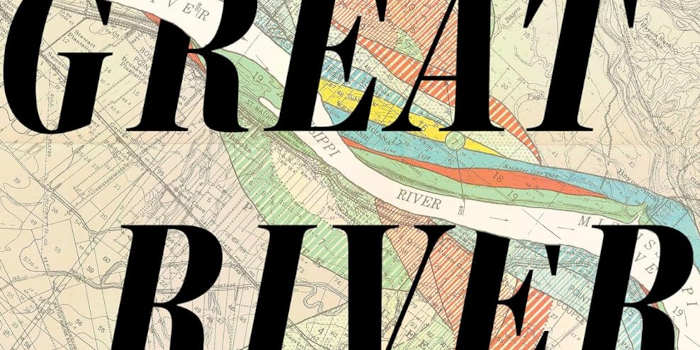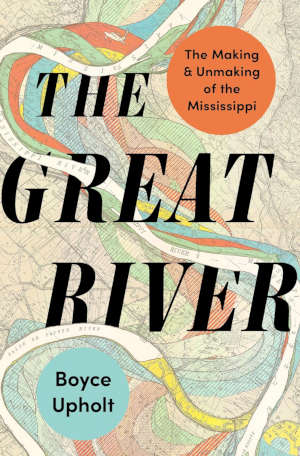Boyce Upholt The Great River recensie en informatie van het boek over de rivier de Mississippi. Op 11 juni 2024 verschijnt bij uitgeverij W.W. Norton & Co. het boek over de geschiedenis van de rivier de Mississippi van de Amerikaanse scrhiver Boyce Upholt. Hier lees je informatie over de inhoud van het geschiedenisboek, de schrijver en over de uitgave. Er is geen Nederlandse vertaling van het boek verkrijgbaar of aangekondigd.
Boyce Upholt The Great River recensie en review
Als er in de media een boekbespreking, recensie of review verschijnt van The Great River, The Making and Unmaking of the Mississippi, geschreven door Boyce Upholt, dan besteden we er op deze pagina aandacht aa.
- “A majestic history of the Mississippi River….[A]n exceptional natural history that never loses sight of the human players involved.” (Publishers Weekly)
- “An experienced paddler who has rowed from St. Louis to the Gulf of Mexico, Upholt takes a deep dive into the Mississippi’s past, present, and future, interspersing research and reporting with stories from his own travels.” (Julia Holmes, Outside Magazine)
The Great River
The Making and Unmaking of the Mississippi
- Auteur: Boyce Upholt (Verenigde Staten)
- Soort boek: geschiedenisboek
- Taal: Engels
- Uitgever: W.W. Norton & Co.
- Verschijnt: 11 juni 2024
- Omvang: 352 pagina’s
- Uitgave: gebonden boek / ebook
- Prijs: $29.99
- Boek bestellen bij: Amazon / Bol / Libris
Flaptekst van het boek over de geschiedenis van de rivier de Mississippi
A sweeping history of the Mississippi River—and the centuries of human meddling that have transformed both it and America.
The Mississippi River lies at the heart of America, an undeniable life force that is intertwined with the nation’s culture and history. Its watershed spans almost half the country, Mark Twain’s travels on the river inspired our first national literature, and jazz and blues were born in its floodplains and carried upstream.
In this landmark work of natural history, Boyce Upholt tells the epic story of this wild and unruly river, and the centuries of efforts to control it. Over thousands of years, the Mississippi watershed was home to millions of Indigenous people who regarded “the great river” with awe and respect, adorning its banks with astonishing spiritual earthworks. The river was ever-changing, and Indigenous tribes embraced and even depended on its regular flooding. But the expanse of the watershed and the rich soils of its floodplain lured European settlers and American pioneers, who had a different vision: the river was a foe to conquer.
Centuries of human attempts to own, contain, and rework the Mississippi River, from Thomas Jefferson’s expansionist land hunger through today’s era of environmental concern, have now transformed its landscape. Upholt reveals how an ambitious and sometimes contentious program of engineering—government-built levees, jetties, dikes, and dams—has not only damaged once-vibrant ecosystems but may not work much longer. Carrying readers along the river’s last remaining backchannels, he explores how scientists are now hoping to restore what has been lost.
Rich and powerful, The Great River delivers a startling account of what happens when we try to fight against nature instead of acknowledging and embracing its power—a lesson that is all too relevant in our rapidly changing world.
advertentie


